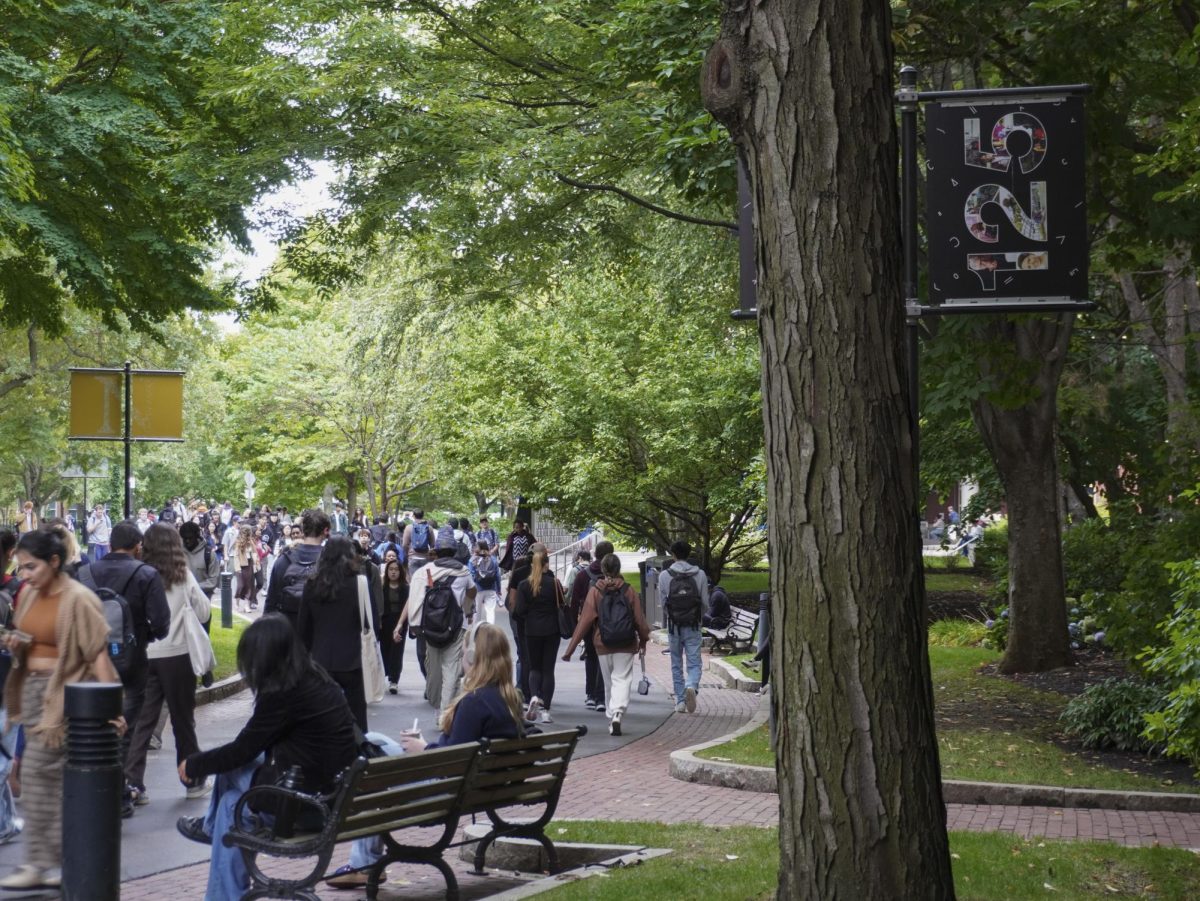Students’ level of satisfaction with the campus climate and their overall experience at the university rose from 2021 to 2023, according to the 2023 Diversity and Equity Survey Northeastern published in August. Meanwhile, satisfaction at global campuses lagged when compared to overall results.
The survey, administered in spring of 2023 and sent to The News in September, gathered responses from 5,800 participants, or about 10% of the entire global Northeastern population of students, faculty and staff of 58,060 people. Of the survey participants, faculty, staff and administrators represented more than half of total responses, despite comprising just 15% of the university’s population.
Of all university staff, 44.8% responded to the survey, along with 25.1% of faculty and administrators, 7.1% of graduate students and 4.5% of undergraduate students.
The Presidential Council on Diversity and Inclusion, in collaboration with the Higher Education Data Sharing Consortium, or HEDS, releases the surveys biannually. The first survey was released in 2021 as part of Northeastern President Joseph E. Aoun’s 2020 action plan “to address the scourge of systemic racism, thereby renewing [the school’s] commitment to diversity, equity and inclusion.”
The survey, distributed by HEDS, asks respondents about their “perceptions of their institution’s climate, how their institution supports diversity and equity and experiences with discrimination and harassment at their institution,” according to its website. There are about 141 HEDS member institutions — Northeastern is not one — that regularly participate in the surveys.
Overall, the campus climate satisfaction level for Boston and all global campuses rose from 74% in 2021 to 76% in 2023. Respondents satisfied with the overall campus experience and environment regarding diversity went up 8 percentage points, from 62% in 2021 to 70% in 2023.
The results also concluded that Northeastern students and staff are more satisfied about overall campus climate and Northeastern’s diversity than respondents at other four-year universities that participate in the HEDS survey. The majority of respondents reported they had never experienced discrimination or harassment on campus, and the percentage of respondents reporting they experienced any kind of harassment decreased from 2021 to 2023.
When separated from total results, global campuses ranked lower than Northeastern’s Boston campus in all campus climate satisfaction factors except that members of global campuses reported they felt that a higher percentage of the community experienced a sense of belonging to their respective campuses than responses in Boston — not to be confused with the previous question, which asked about respondent’s personal experiences with campus belonging. Global campuses include all 12 campuses outside of Boston, and for the first time, the London and Oakland campuses were also surveyed.
Global campuses’ overall climate satisfaction was three percentage points below the Boston campus’s rating. Perceptions of diversity at global campuses also fell behind overall responses, with 65% of global campus respondents indicating they were satisfied with their campus environment around diversity compared to 70% at the Boston campus. More respondents, around 65%, reported feeling a sense of belonging at the Boston campus compared to 62% at satellite campuses.
While responses from various campuses were included previously, this year, more of the survey was dedicated to analyzing their responses. Survey participants on campuses outside of Boston made up more than 20% of respondents, as compared to just over 12% in 2021. In 2021, though responses were measured on a one-to-five scale of satisfaction, responses were higher in every category than the responses from just the Boston campus.
The survey noted that while undergraduate students only represented 4.5% of the responses and 19.5% of Northeastern’s population, there was a large enough group of undergraduate students to allow for appropriate analysis of the results and the institution of specific programs based on the findings.
The percentage of survey respondents in each ethnic and racial group was within 5% of the group’s makeup of the entire student body. However, white respondents were overrepresented by 14.1%, and international students were underrepresented by 14.5%. Approximately 24.4% of survey respondents identified as people of color.
James Hackney, the dean of Northeastern University School of Law, and Kellee Tsai, the dean of the College of Social Sciences and Humanities, wrote in a statement that the biannual surveys “help assess our progress in weaving inclusion, diversity, equity and belonging into the fabric of our university.”
“The 2023 survey provides another opportunity to take stock and identify areas in need of improvement to realize our commitment to building a more diverse, inclusive and equitable community,” the statement reads.
The survey results have previously spurred the university to implement bias-free hiring processes, provide learning opportunities and discussions for staff and students and ensure accountability through diversity, equity and inclusion, or DEI, action plans, according to the 2023 survey. Executive Director of the Office of Diversity, Equity and Inclusion Rosa Rodriguez-Williams wrote that the programs were “designed to enhance the sense of belonging throughout the global university system,” which will be continued to ensure a community of “inclusive excellence.”
Moving forward, the approach lead by the Northeastern DEI office aims to develop action plans centered around people of color, the LGBTQ+ community — specifically non-binary and transgender people — people who are disabled temporarily or long-term, females and those who are politically conservative and politically liberal — all groups, according to the report, who were identified as feeling a weaker sense of belonging than other groups.
Additionally, the school said follow-up efforts will be made surrounding the root causes of some groups feeling alienated by the Northeastern community. Specifically, the school aims to increase opportunities for members of the community to interact with those of different backgrounds or religious or political beliefs.
To encourage student participation in these upcoming surveys, the council is considering making an independent survey, which would be shorter and more specific to the university. However, Northeastern wouldn’t be provided comparative data that they do currently through HEDS.
“The climate survey results provide a guide for continual improvement in the Northeastern global community towards inclusive excellence,” Rodriguez-Williams wrote in a statement included in the report. “In the coming year we will continue our work to foster a stronger sense of belonging both within groups and across the university, in addition to addressing the challenges identified by respondents. This will require the dedication and agency of our community members to co-create a culture characterized by curiosity, empathy and respect.”
The Huntington News is dedicated to serving the Northeastern University community with original, professional reporting and creating an environment in which student journalists can learn from one another. Support an independent, free press at Northeastern University with your donation today.










